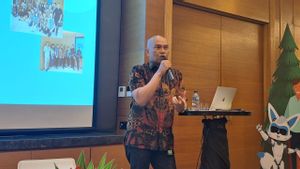JAKARTA - The New York Times (NYT) has sent a "cease and discharge" warning letter to Perplexity, an AI startup, which demands the company to stop using the newspaper's content for artificial intelligence purposes. This is the latest conflict between news publishers and AI companies.
The letter, which NYT shared with Reuters, stated that the way Perplexity uses their content, including to create summaries and other types of outputs, violates copyright laws. However, NYT declined to provide additional comments on the matter.
Since the launch of ChatGPT, news publishers have been increasingly worried about chatbots that can comb the internet to find information and create a summary of paragraphs for users.
The letter dated October 2 demands that Perplexity "immediately stop and refuse access and use of The Times content that is invalid, both now and in the future." NYT also asked Perplexity to provide information on how they access the publisher's website even though there have been preventive measures.
Perplexity had previously assured publishers that they would stop using "crawling" technology. However, NYT stated that its content still appears in Perplexity.
The startup states that they did not "script" the data to build the basic model, but instead indexed the web page and displayed factual content as a reference in answering user questions.
SEE ALSO:
Perplexity also said that they would respond to the letter before the October 30 deadline set by NYT to provide the requested information.
NYT is also at odds with OpenAI, which they sued last year for allegedly using millions of their newspaper articles without permission to train its AI chatbots.
This year, Reuters reported that several AI companies have passed the web standards used by publishers to block their data collection used in a generative AI system.
Perplexity itself faces accusations of plagiarism from media organizations such as Forbes and Wired, but has launched a profit-sharing program to deal with concerns from publishers.
The English, Chinese, Japanese, Arabic, and French versions are automatically generated by the AI. So there may still be inaccuracies in translating, please always see Indonesian as our main language. (system supported by DigitalSiber.id)


















